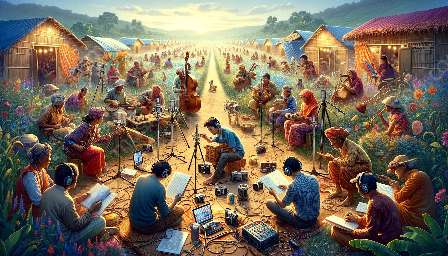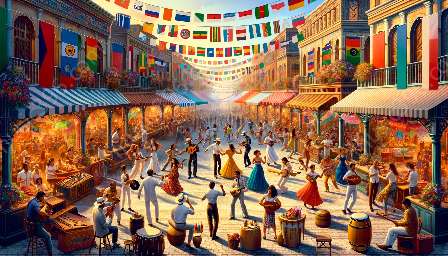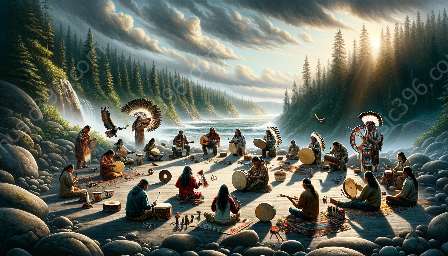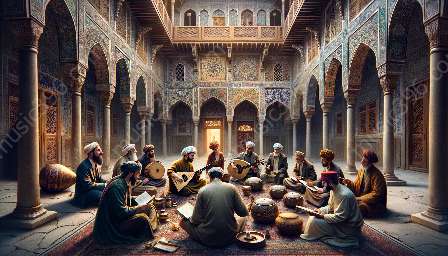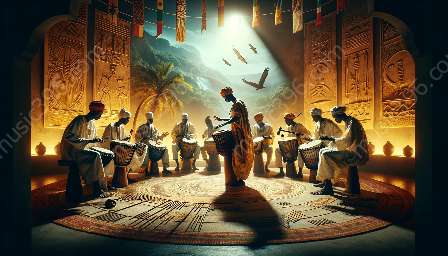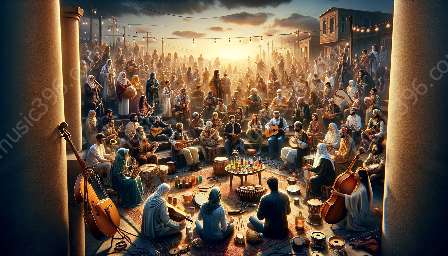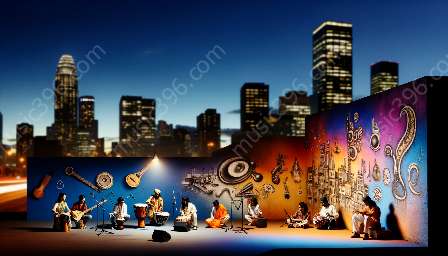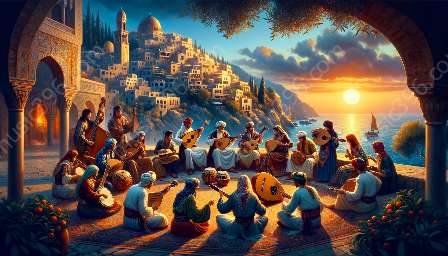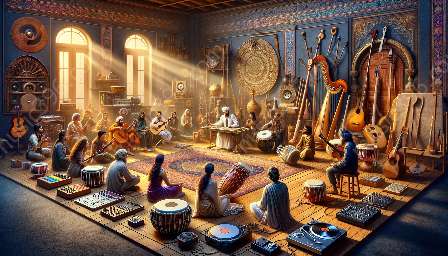The preservation of Pacific Island music traditions is essential to safeguarding the rich heritage and cultural identity of the diverse Pacific music cultures. Within the broader field of ethnomusicology, the study of Pacific Island music traditions offers valuable insights into the historical, social, and cultural significance of these musical practices.
Exploring Pacific Music Cultures
Pacific music cultures encompass a wide range of musical traditions, reflecting the distinct identities and histories of the numerous Pacific Island nations and territories. From the rhythmic drumming of Polynesian music to the haunting melodies of Melanesian chants, each culture has its unique musical expressions that have been passed down through generations.
The interconnectedness of Pacific music cultures is evident in the shared themes and motifs that underpin many traditional musical forms. Despite the geographical and cultural diversity across the Pacific, there are common elements that bind these music traditions together, creating a dynamic and multifaceted tapestry of musical expressions.
Role of Ethnomusicology
Ethnomusicology provides a valuable framework for the study of Pacific Island music traditions, offering a comprehensive approach to understanding the historical, cultural, and social contexts in which these musical practices have evolved. By analyzing the musical repertoires, performance practices, and cultural meanings associated with Pacific music, ethnomusicologists contribute to the preservation and documentation of these vital traditions.
Through ethnographic research and fieldwork, ethnomusicologists engage with Pacific communities to study and document the diverse musical traditions, ensuring that these valuable cultural resources are preserved and shared with broader audiences. The interdisciplinary nature of ethnomusicology allows for a holistic examination of Pacific Island music, encompassing not only the musical elements but also the social and historical contexts that shape these traditions.
Preservation Efforts
The preservation of Pacific Island music traditions is an ongoing effort that involves collaboration between musicians, scholars, cultural institutions, and community members. One of the critical aspects of preservation is the documentation of traditional music through audio and visual recordings, as well as the collection of oral histories and narratives that provide valuable insights into the cultural significance of these musical practices.
Furthermore, educational initiatives and cultural exchange programs play a vital role in transmitting Pacific music traditions to younger generations and fostering cross-cultural understanding. By integrating traditional music into formal education and community events, efforts are made to ensure that the legacy of Pacific Island music continues to thrive and evolve in a contemporary context.
Contemporary Expressions
While the preservation of Pacific Island music traditions focuses on safeguarding historical forms, contemporary musicians and artists also play a crucial role in the evolution and revitalization of these traditions. Through innovative collaborations, reinterpretations of traditional repertoire, and the incorporation of modern musical influences, Pacific musicians contribute to the dynamic cultural landscape of Pacific music.
The fusion of traditional and contemporary elements in Pacific music reflects the resilience and adaptability of these musical traditions, demonstrating their relevance in an ever-changing world. By engaging with global audiences and embracing new technologies, Pacific Island musicians continue to celebrate their heritage while simultaneously charting new pathways for the future of Pacific music.
Conclusion
The preservation of Pacific Island music traditions is a multifaceted endeavor that encompasses historical, cultural, and contemporary dimensions. Through the intersection of Pacific music cultures and the field of ethnomusicology, efforts to safeguard these vital traditions are informed by a deep appreciation for the rich heritage and diverse expressions of Pacific music. By fostering collaboration, documentation, education, and innovation, the preservation of Pacific Island music traditions ensures that these valuable cultural assets continue to thrive and resonate with present and future generations.


